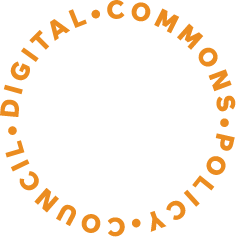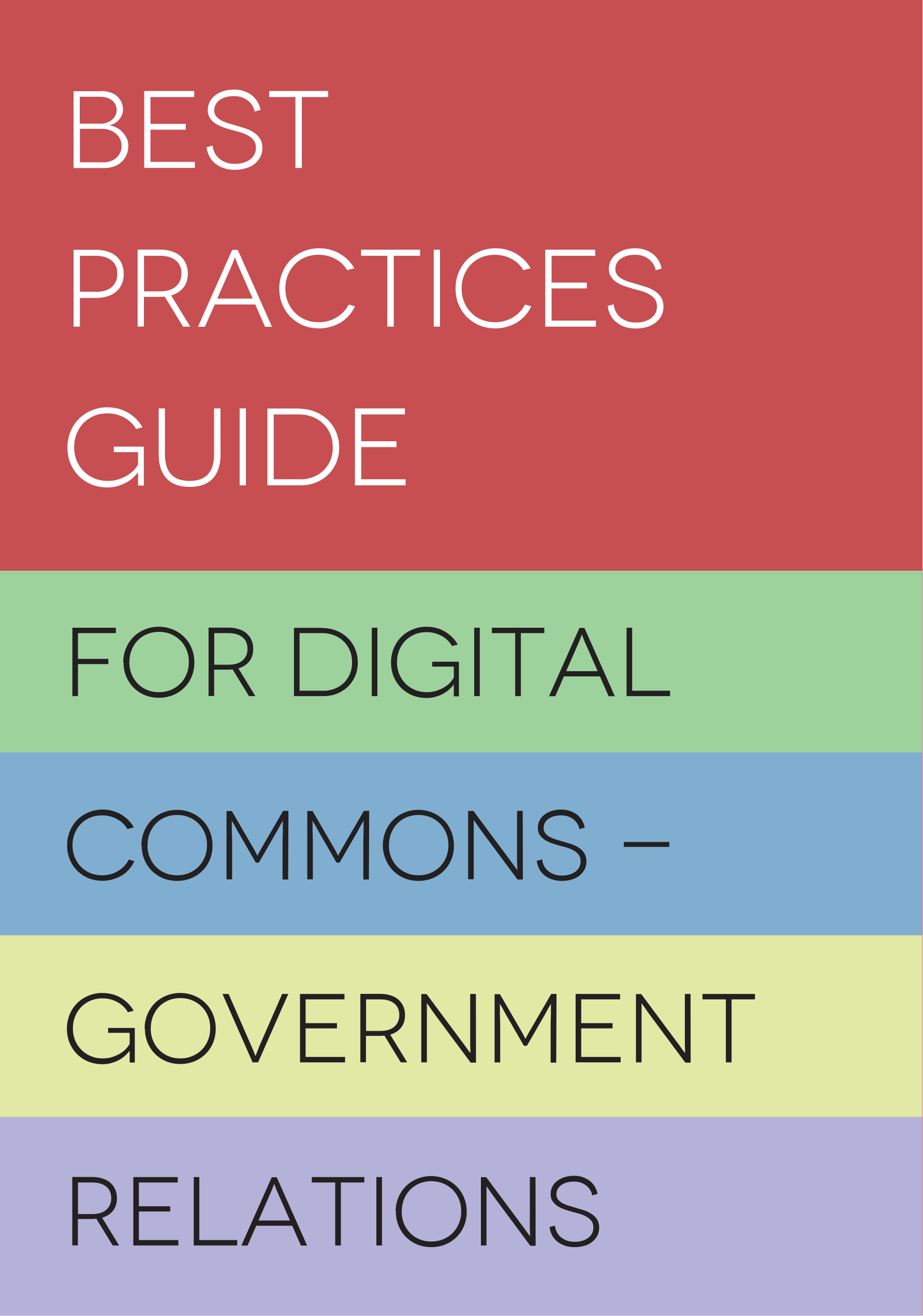Title Best Practices Guide for Digital Commons – Government Relations
Released 25 Sep. 2024
Format A5, 56 pages.
Digital Commons Policy Council (2024) Best Practices Guide for Digital Commons – Government Relations. DCPC/NMRC, University of Canberra, DOI: 10.60836/tsx6-wc02.
Governments, especially via their procurement processes, industrial policy and public service policy should be supporting and promoting the long-term sustainability and security of digital commons such as open source software. This will enable governments to pivot towards increased cost savings, support for ethical initiatives and technological sovereignty in the public sector. Today, the publication of the Digital Commons Policy Council’s guide, Best Practices Guide for Digital Commons – Government Relations, is a significant step in achieving closer cooperation between governments and digital commons projects.
The Digital Commons Policy Council (DCPC) is an international think tank founded in 2021 at the University of Canberra, building on the earlier work of the peer-reviewed Journal of Peer Production.
The DCPC produces public reports based on empirical data, submissions to lawmakers, educational resources for schools, and scientific articles to increase recognition for the digital commons and the voluntary work that creates these common goods.
Digital commons such as open source software (OSS) are community-developed resources which can be used by anyone. Some have been adopted by industry: for example, OSS represents 90% of software stacks, and Microsoft bought the GitHub open source development platform for USD7.5 billion in 2018.
As digital commons are non-rival public goods, many firms which rely on open digital infrastructure do not contribute to its maintenance, resulting in potentially damaging security breaches, such as the 2021 Log4j vulnerability. [1]
Some governments are addressing these market failures. For example in the wake of Log4j, Germany launched in 2022 its Sovereign Tech Fund, which aims to support open source software through public investment.
In addition to addressing market failures and security breaches, digital commons’ open and transparent nature can also help governments restore trust in public health measures, as occurred with open COVID-19 apps.
Such connections between governments and digital commons projects are not well known, or documented. To remedy this, on 30-31 May 2024 the DCPC-CIS 2024 Policy Lab was held in Paris at the Centre Internet et Société (CIS) of the French National Center for Scientific Research (Centre National de la Recherche Scientifique, CNRS).
The event brought together thirty digital commons experts from Australia, Belgium, France, Germany, Italy, the Netherlands, Norway, Sweden and the UK. They included representatives from academia, civil society organisations, digital commons communities and projects and public sector organisations.
A key Policy Lab output is the Best Practices Guide for Digital Commons – Government Relations, published today, which aims to provide interested policymakers and public service officials with best practices to support digital commons projects.
The Guide’s supervising editor, Professor Mathieu O’Neil from the University of Canberra, said that “adopting digital commons can save governments money, increase interoperability for public services and digital infrastructure, and enhance a nation’s digital sovereignty by reducing its dependence on Big Tech proprietary products, so that technical decisions are based on local laws, norms and values.”
[1] See https://www.cyber.gov.au/about-us/advisories/2021-007-log4j-vulnerability-advice-and-mitigations
Download



